The Illusion of Victory (58 page)
Read The Illusion of Victory Online
Authors: Thomas Fleming

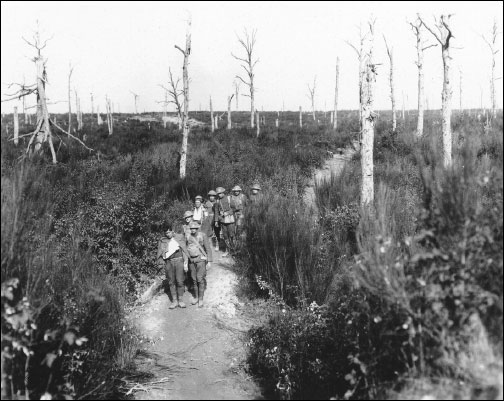
American wounded emerge from the front lines in the Argonne. This fierce 47-day battle cost the AEF more than 100,000 casualties. At one point, a desperate
Pershing issued orders to shoot any man who ran away.
C
OURTESY OF
F
RANKLIN
D. R
OOSEVELT
L
IBRARY

Brigadier General Douglas MacArthur was called the “D’Artagnan of the AEF.” He designed his own uniform and refused to wear a helmet or gas mask at the front. He won two Distinguished Service Crosses.
P
HOTOS OF THE
G
REAT
W
AR
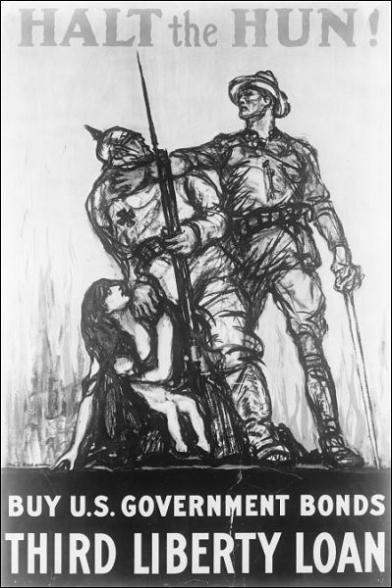
Although Wilson declared that America would fight a war without hate, his administration was soon selling war bonds with a naked appeal to dark instincts. Hollywood produced films such as “The Kaiser, The Beast of Berlin.”
C
OURTESY OF THE
L
IBRARY OF
C
ONGRESS

Eugene V. Debs, head of the American Socialist Party, attacked the war in this speech in Ohio. He was arrested and sentenced to ten years in prison under the Espionage Act, which made it a crime to criticize the government.
E
UGENE
V. D
EBS
F
OUNDATION
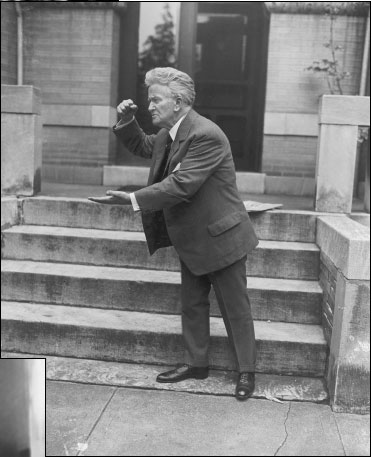
Liberal Republican Senator Robert La Follette of Wisconsin made a four hour speech opposing Woodrow Wilson’s call for war. He later denounced the Versailles Peace Treaty as “a spoils-grabbing compact of greed and hate.”
W
ISCONSIN
H
ISTORICAL
S
OCIETY
(5455)
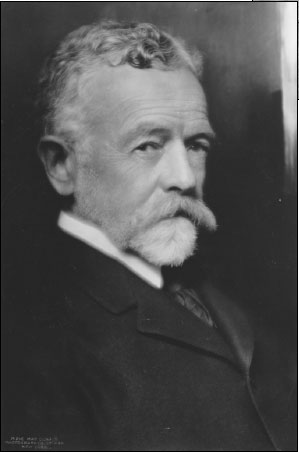
Conservative Republican Henry Cabot Lodge of Massachusetts opposed Wilson’s version of the League of Nations. Lodge was not an isolationist. He believed America had an important role to play in world affairs.
C
OURTESY OF THE
L
IBRARY OF
C
ONGRESS

General Leonard Wood was a former army chief of staff and political ally of Theodore Roosevelt. Wood relentlessly criticized the Wilson administration’s conduct of the war.
B
ETTMANN
/©CORBIS
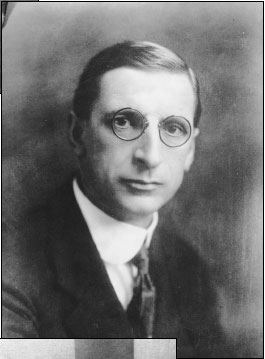
Eamon de Valera was president of the as yet unrecognized Irish republic. He helped lead Irish-American opposition to the League of Nations when Wilson refused to ask the British government to grant Ireland independence.
C
OURTESY OF THE
L
IBRARY OF
C
ONGRESS
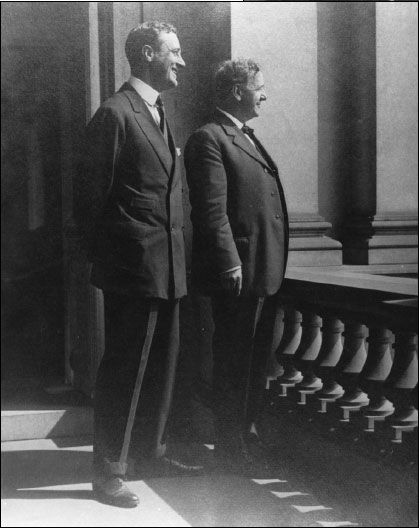
Assistant Secretary of the Navy Franklin D. Roosevelt and his boss, Josephus Daniels, gaze at the White House from a balcony of the State, War and Navy building. Roosevelt repeatedly tried to ruin Daniels’ reputation so he could get his job.
C
OURTESY OF
F
RANKLIN
D. R
OOSEVELT
L
IBRARY

Secretary of State Robert Lansing undermined Wilson’s efforts to achieve a negotiated peace early in 1917. He saw nothing wrong with U.S. arms trade with the Allies. After the war he made little attempt to conceal his contempt for the Treaty of Versailles.
P
HOTOS OF THE
G
REAT
W
AR
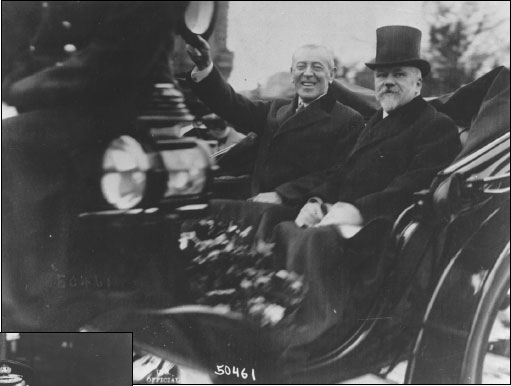
Woodrow Wilson accepts the plaudits of the Paris crowd in this carriage ride with French president Raymond Poincaré. The two men soon hated each other. Poincaré attacked Wilson as pro-German. Wilson blamed him for demanding a vengeful peace.
C
OURTESY OF
F
RANKLIN
D. R
OOSEVELT
L
IBRARY